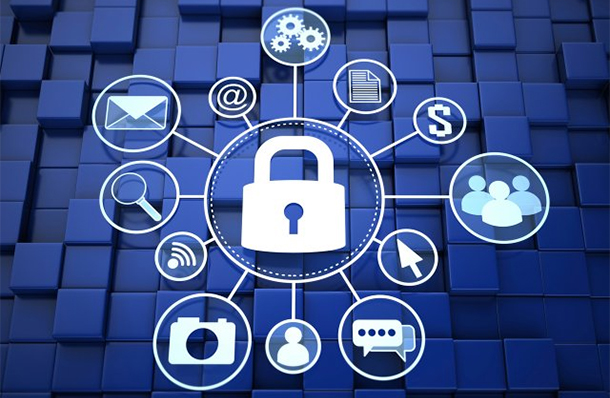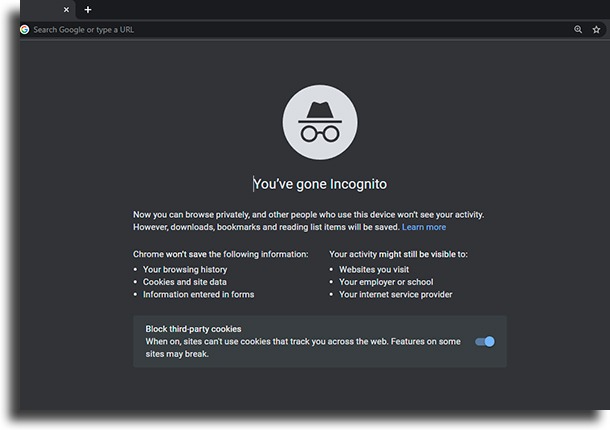Read too: 9 apps that deplete the battery on phones: how to manage them!
1. Use special characters
When it comes to tips for not having your passwords hacked, we should use whatever we can to make it difficult for other people or even programs to figure out what they are. One of the best ways to do this is to include special characters in your passwords. If you want to create a password like “defaultpassword”, consider leaving it like this: “def@ultpassw0rd!”. Numbers and special characters help with the complexity and security of your password.
2. Size matters
The length of your password is important, programs that find passwords try several different combinations until they find yours. That is, the longer the password, the more work for hackers. Look for something between 8 and 11 characters, but avoid going beyond that.
3. Be careful when saving passwords
Do you know when we log into our account on websites or programs we are asked if we want to save the account and password or to be remembered? Be careful when choosing these options, especially on smartphones. If you save Facebook access on your phone and it gets stolen, thieves can access your account without even having to enter your password to log in. Remember to log out of apps after using them.
4. Do not share passwords
It sounds obvious, but this is one of the best tips for not having your passwords hacked. Even if these friends and family are trusted, hackers can track the messages sent depending on the medium used and easily discover your password. If you really need to share passwords, try to do so in person, or at least delete the messages later.
5. Beware of suspicious websites
Suspicious websites, especially those that do not have the HTTPS protocol, can trick users and steal passwords to access email addresses. Always pay attention to the pages you are visiting and make sure they are genuine.
6. Secure your WiFi network
Securing your Wi-Fi network and avoiding public networks are great ways to prevent unauthorized access to your data. To do this, you usually just need to create a password and remember to use the tips above! If you share your password with many friends and family, consider changing it periodically.
7. Use different passwords
The only thing worse than having one account hacked is having multiple accounts hacked. This happens when we use the same password on different pages, for example for our Facebook, Twitter, Instagram, etc. Usually, the email used is also the same, so using different passwords is the best way to avoid this situation.
8. Create hard passwords
One of the tips for not having your passwords hacked is to avoid making simple passwords that contain, for example, only your pet’s name, your’s or your family’s birthday, etc. Look for passwords that are relevant to you but that other people can’t easily figure out. It may seem like an obvious one, but it is one of the best tips to not have your passwords hacked. The number of people using passwords like “password123” or “123123” is greater than you might think.
9. Beware of suspicious programs
Avoid downloading and installing any suspicious programs on your computer or smartphone. Some viruses and programs are able to run in the background and capture inputs from your devices, such as everything that is being typed on your keyboard or everything that passes on your smartphone screen.
10. Use incognito mode in the browser
When you need to access any account on a public computer, always use incognito mode. It guarantees that any access data will not be recorded on the computer, except in cases of infected computers. In general, the ideal is to avoid accessing accounts, especially bank accounts, on public devices, making this one of the most important tips for not having your passwords hacked.
Store passwords
An alternative tip that can be used with our suggestion of using several different passwords is to use apps to store these passwords. This way, you don’t have to worry about remembering them all. There are many apps that offer this service and our recommendation is to use NordPass. The service serves as a vault for your passwords. Stored on an encrypted server in the cloud, you can use it on both your computer and smartphone. Also, by keeping it enabled, you can automatically enter your login and password information into any service. Other features include a strong password generator and the ability to organize your logins into several custom categories. To learn more about NordPass, visit the link now and register now!
Dashlane: Dashlane is one of the apps to manage passwords on desktop and mobile devices. It allows you to store your passwords and any other type of data that you consider important. The good thing is that it has support for devices that have fingerprint sensors, something that is not found in all applications of this type. You can download the app through this link. KeePass: KeePass is another very interesting option that you can use directly on your computer. As it does not require installation, it is possible to take the software on a flash drive and use it on any PC or file. Other than that, it’s very simple to use and it even has a password generation feature for when you need to log in to an unknown website. Click here to download it. 1Password: 1Password works very similarly to LastPass. You can use it to save and manage all your passwords and other private information. This means you can also store your credit card numbers, your bank details, and other important data. You can check it out for yourself by downloading it from this link.
Also, find on AppTuts:
7 best backup apps for Android How to change your Instagram password on mobile! The 20 best security apps for iPhone and Android
What did you think of our list of tips for not having your passwords hacked?
Change your passwords right now if they don’t follow some of the standards mentioned in the list. Have you ever had your password stolen? Share this article with anyone who has had it happen to them!


